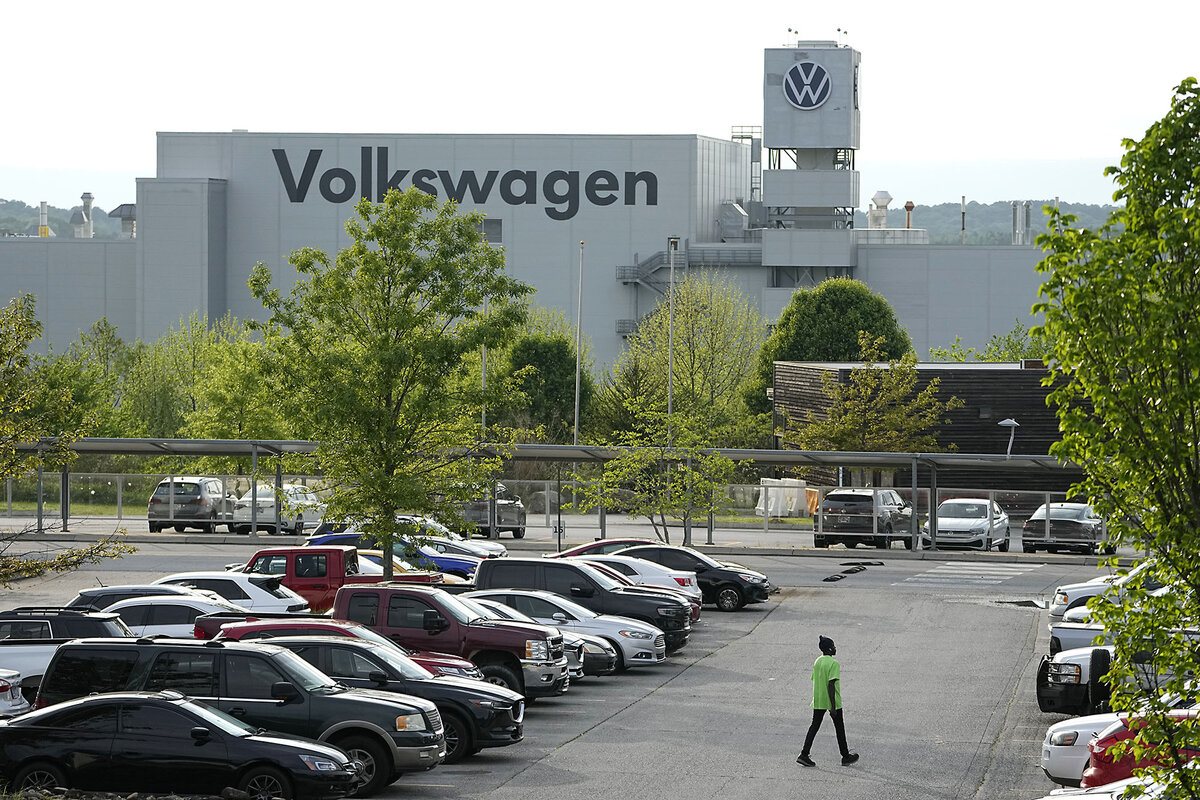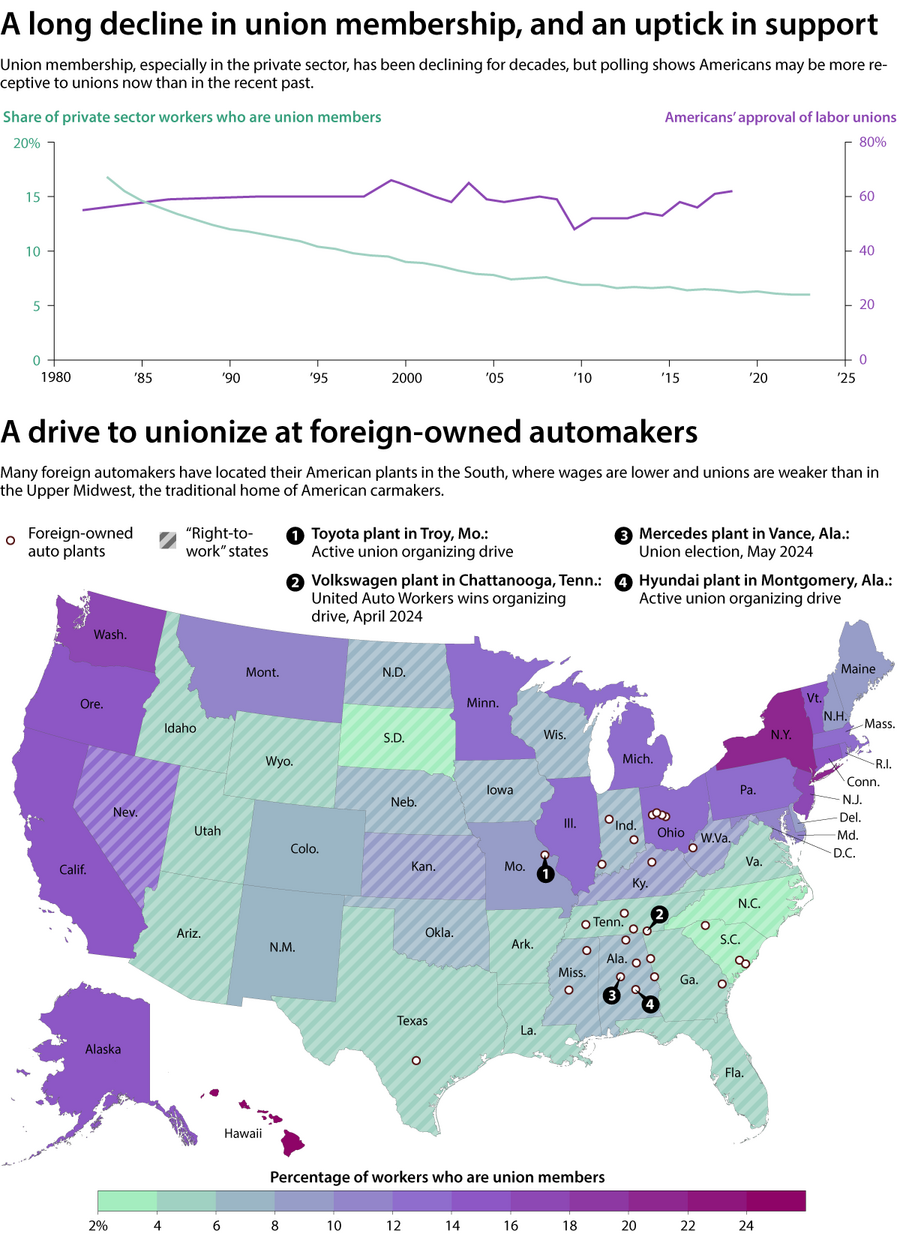Tennessee win for UAW could open road for labor in South
Loading...
The United Auto Workers’ organizing win at Volkswagen’s Tennessee plant represents a huge step for the labor movement in the South, which up to now has proved resistant to unions.
It’s the first time the UAW has successfully organized a foreign-owned auto plant in the South, and builds on the union’s success winning big raises for its members at Detroit-based automakers last fall.
With that momentum, the union now hopes to organize other foreign-owned auto plants. Next up is Mercedes in Vance, Alabama, where more than 5,000 workers will vote next month on unionization. The union is also actively working to organize Hyundai’s plant in Montgomery, Alabama, and Toyota’s facility in Troy, Missouri.
Why We Wrote This
A story focused onIn the United States, many foreign-owned auto plants are based in the South, where unions are weaker. But a recent United Auto Workers win could shift the narrative.
“No one should be paid less or treated worse on the job because they live in the South,” Patrick Gaspard, head of the liberal Center for American Progress, said in a statement Friday following the UAW win at VW’s Chattanooga plant.
Autoworkers are part of a larger organizing push by the labor movement since the COVID-19 pandemic. An acute labor shortage has shifted power to employees to establish unions in unlikely places, such as Google, Amazon, and Starbucks. An uptick in public approval hasn’t hurt, either.
Despite these efforts, the labor movement has failed to reverse a seven-decade decline in union affiliation. In the 1950s, 1 in 3 American workers belonged to a union. Last year, the share fell to a postwar low of 1 in 10. The decline is even sharper in the private sector: Fewer than 1 in 16 workers belong to a union.
That is why the UAW is fighting so hard to organize foreign automakers: If union growth can’t keep pace with the growth in the U.S. workforce generally, it must dominate certain industries to retain its bargaining clout.
The South poses particular challenges for the UAW. Many foreign automakers set up shop there because wages and benefits are lower and unions are weaker than in much of the Upper Midwest. The region has some of the lowest union affiliation rates in the United States, especially in South Carolina (2.3%), as opposed to, say, New York (20.6%) or Hawaii (24.1%).
Low pay and benefits give foreign automakers a cost advantage over the Detroit automakers, with workers having little power to improve them. Whether the UAW can change that equation will depend on how many times it can replicate last week’s victory at VW at other foreign-owned auto plants. Like VW, Mercedes has long experience with independent, powerful unions in its home country. Asian automakers such as Toyota, Nissan, Honda, and Hyundai have no such experience at home and prove more resistant.
Moreover, all the Southern states have “right-to-work” laws. These laws ensure that unions can’t compel workers to join their ranks. Thus, workers can get the benefits of a union contract without having to pay union dues. This free-rider problem poses a challenge for unions, which depend on dues to fund their operations. A study of five states that adopted right-to-work laws between 2011 and 2017 found that wages fell an average 1% and unionization dropped 4 percentage points within five years of adopting the law.
Indiana, where Honda, Subaru, and Toyota have plants, is a right-to-work state. Missouri, home to a Toyota engine plant, is not. Michigan, home to many auto plants under U.S. ownership, repealed its right-to-work law last year.
Still, the minimum 25% raise over four years in new UAW contracts with General Motors, Ford, and Stellantis (owner of Fiat Chrysler) may prove a powerful siren call for nonunion autoworkers, who were averaging some $8 an hour less than established UAW workers even before the new contracts.







